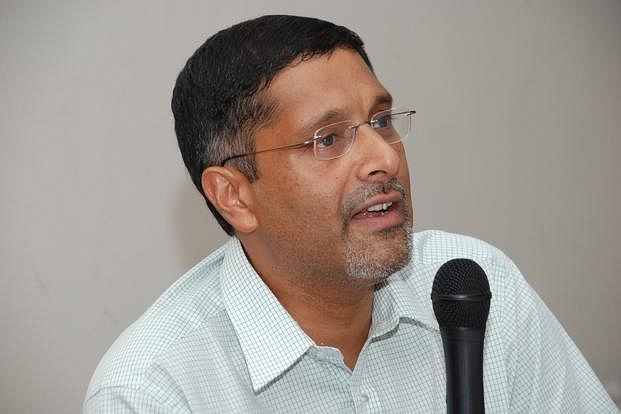
Economic Survey: Reforms, But Not Big Bang
The survey feels the government should move decisively in areas where it is in control and resort to persistent, proactive incrementalism in others to achieve its objectives
India is in a sweet spot, that’s the message from the Economic Survey 2014-15 put together by Chief Economic Advisor Arvind Subramanian and his team at the Finance Ministry. India’s economy could potentially expand 8.1-8.5% at constant market prices in 2015-16, and inflationary pressures stay muted due to the coming together of factors such as lower crude oil prices and deceleration in agricultural prices and wages.
Further, the current government has the political mandate to carry out far reaching reforms that can give further impetus to growth. That, combined with benign external environment gives rise to an opportunity to achieve double-digit growth.
Yet, at over 8% growth, India is still not a roaring or a surging economy, like the East Asian tigers, cautions Subramanian. “India is still a recovering economy,” Subramanian said at press conference in Delhi, explaining his observations in the Survey. The growth estimate is based on a new series of National Accounts released recently by the Central Statistics Office of the Ministry of Statistics and Programme Implementation. Subramanian admitted that he is still puzzled by the estimates of CSO, given that other indicators of growth were not so encouraging.
The optimism on growth and inflation however is no reason for the government to be complacent. The survey is emphatic that the government needs to play a leading role without being populist or extravagant to maintain macroeconomic stability. “Expenditure control, and expenditure switching from consumption to investment, will be key,” says the Survey, adding the government will need to maintain fiscal discipline even as it steps up expenditure to revitalise growth.
The focus needs to be on eliminating leakages and improving targeting in the provision of subsidies. Shifting to a technology-enabled trinity solution – a combination of Jan Dhan Yojana, Aadhar and mobile – too would help bring down leakages as well as ensure better targeting of expenditure meant for the poor.
The Survey says that there is a case for reviving targeted public investment as an engine of growth in the short run to complement and crowd-in private investment. “The private sector can be the engine of growth in the long term.”
“In the short term, growth will get a boost from the cumulative impact of reforms, lower oil prices, likely monetary policy easing facilitated by lower inflation and improved inflationary expectations, and forecasts of a normal monsoon in 2015-16.”
Subramanian also said that “Big Bang Reforms” is not the way forward for sustainable growth. Rather, the government should move decisively in areas where it is in control and resort to persistent, proactive incrementalism in others to achieve its twin fundamental objective of double digit growth and to create opportunities for young, middle class and aspirational India.
The Survey expects the reforms already put in place and those on the anvil will help boost investment and growth. Deteriorating market conditions and regulatory hurdles together had held up projects estimated to be worth 7% of GDP. Most of these are in manufacturing and infrastructure sectors. The impact of such stalling weakened balance sheets of companies and public sector banks that had enthusiastically lent when times were good. Now, bad loans are holding up new investments from taking place.
On the inflation front, the CEA expects the economy to outperform Reserve Bank of India’s estimate, thereby creating more room for easing of monetary policy. This, as mentioned earlier, is due to lower crude prices, slower rural wage growth and muted inflationary expectations of households.
The Survey suggests greater cooperation between the government and the RBI on inflation targeting. It calls for “a monetary policy framework agreement to consolidate the recent gains in inflation control and codify into an institutional arrangement what has become the de facto practice”.
The rapidly improving macro-economic environment in the country has also made it an attractive destination not just among its peer group of other emerging nations with similar credit rating, but also better than some better rated nations. That could lead to surfeit of inflows in the near future, creating new set of problems with exchange rate management. Yet, it could also be an opportunity for India to build a large foreign exchange reserve – something that needs more thought, Subramanian said.
On the external front, the outlook for current account deficit is favourable, with expectation of a surplus in the coming quarters. Yet, India faces challenges on the export front. Its share of merchandise and service exports in GDP has stagnated in the last five year and the external trading environment is an area of concern as India is not part of some mega regional trade agreements.
The Survey has recommended that India must stick to the medium-term fiscal deficit target of 3% of GDP and eliminate revenue deficit. The implementing the Fourteenth Finance Commission recommendations will lead to states accounting for a large share of total tax revenue. Therefore going forward, India’s public finances must be viewed at the consolidated level and not just at the level of the central government.
Taxation is another area of reform the Survey has called for. It sees the goods and services tax as a game changer that will not only lead to greater revenue buoyancy but also reduce corruption. Changes in direct taxation side should aim for competitive, predictable, clean, and exemptions-light tax policy regime that will lower the cost of capital, incentivise savings, and facilitate taxpayer compliance, it says.
The CEA dismissed concerns that larger transfers of the centre’s tax revenues to states awarded by the Fourteenth Finance Commission will undermine fiscal discipline. Rather states have been more fiscally prudent than the Centre in the past years and the award, which he described as “revolutionary and watershed”, will give states more fiscal autonomy in keeping the decentralization of power that was seen for many years now.